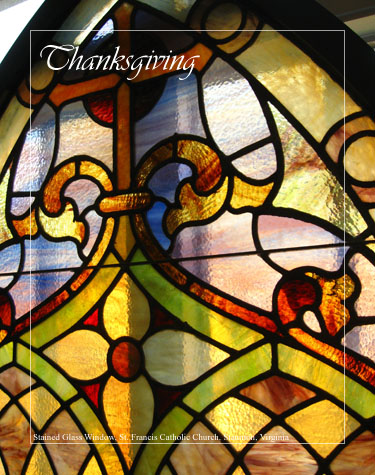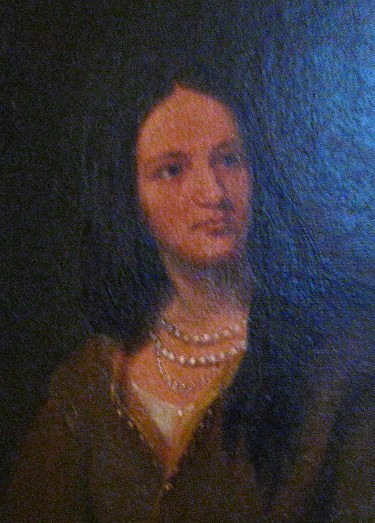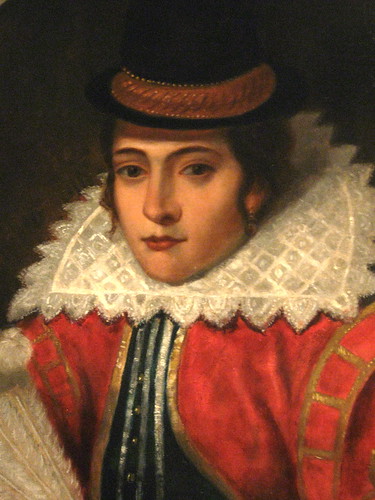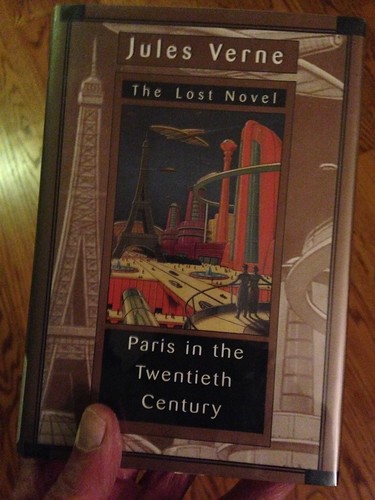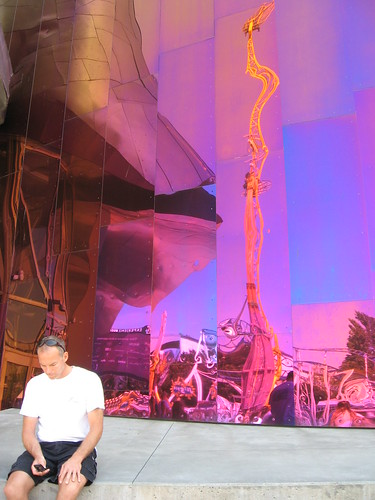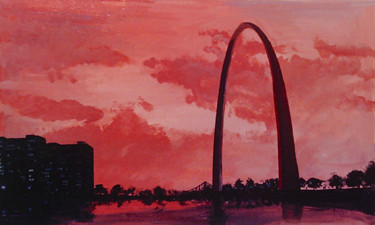
Volume XIII, Issue XXI
A Repeat of One of Our Favorite Issues
The Forgotten Season
The turkey leftovers were still cooling when the much media hyped 'Black Friday' events began. In a Long Island Wal Mart, a young associate was trampled to death as bargain hunters literally broke down the doors. A young man had to die because twenty dollars could be saved on flatscreens. Managers closed the store and someone actually was irate that he couldn't get in. Come on, if a colleague has died, its 'Game Over' on the shopping frenzy. Close the store and try to help the poor man's significant others. To hell with reopening for the remainder of the day! Management reopened the store at one o'clock that afternoon. Satirical publication 'The Onion' came out with a story where thousands were 'reported' to have died in Black Friday shopping. I did not find it funny. One death to satisfy the greed gods is too many. Our prayers go out to the family and friends of this young man. May they find comfort.
Lost in the madness of Black Friday, Cyber Monday and yes, even Small Business Saturday is the wonderful celebration of Advent. The high churches still celebrate it. It is a time of waiting and preparation for the miracle to come. It is so un-modern! It ties us to history. The traditions of Judaism are full of waiting. Abraham and Sarah saw the child of promise when they were way past the age of child bearing. I sometimes think of one-hundred year old Sarah as a preschool parent and join her in her laughter! Then there was Joseph and his imprisonment, followed by hundreds of years of exile in Egypt. We often think about the Promised Land, but we forget that all Promised Lands seem to require a prep!
In fact, there came a time when people forgot the lessons of the brick kilns and lost the Promised Land to the Babylonians and the Persians. The Temple, center of worship, was destroyed. But it was in this time of living as expats that the community of the Synagogue strengthened the people anew. Ezra and Nehemiah presided over a return to the land of promise. Again, the promise required a prep. As the exiles built the prosperity of Persia, they prepared themselves for the time when they would build their own.
A second Temple was built. The exiles returned. Then came the great empires of the Greeks and the Romans. The Temple was rebuilt, but the heavy hand of Roman rule presided over a time of trouble. Many looked to the future Messiah to put things aright. Indeed, there were many who claimed to BE Messiah. They came and went. But in a time when Heaven seemed so distant, there came another child of promise... to a couple way past child bearing. John the Baptist, a "Voice crying in the wilderness," came saying: "Prepare ye the way of the Lord." At the same season of history, his mother Elizabeth's cousin Mary came to visit.
Mary had been visited by an angel and told that she, a virgin, would bear the child of promise. Though this was an incredible blessing, she faced the prospect of unwed motherhood... in a culture that stoned you for it. Her betrothed, however, had also been given a message from Heaven, that he should take her for his wife. What incredible faith and love! When I chose my Confirmation name, as a boy, I took the name Joseph. It was not that I ever thought I could match such selfless love, but that I so admired it! Even to this day, some of the people I admire the most are those men who have stepped into the lives of children they did not physically father, and yet have earned the name Dad nonetheless! These men live as both an example and a challenge to me. Some of them are my juniors in years, but they far surpass in their maturity!
Such are the lessons we miss if we merely content ourselves with instant gratification. There is an old saying: "Rome wasn't built in a day." Indeed our own nation cast off from its sure position as an English colony to pursue an uncertain future. In 1812 England returned to burn the young country's capital. The White House is so called because its sandstone outer walls had to be painted after the burning left them permanently blackened. By the middle of the Nineteenth Century, however, Isambard Kingdom Brunel was building great ships to strengthen Bristol's trade with America. A hundred years after barely surviving her revolution, the nation we know had taken her place as a world power.
Why Advent is Important to Artists [click to read]
Advent is a celebration of the incarnation. It is perhaps the greatest of Christian mysteries, that the Creator G-d would voluntarily and willfully become Man. The Infinite would clothe Himself in the finite. G-d would love us to such a degree that He would become one of us, G-d with Us, Emmanuel." -- Manuel Luz
We do well to celebrate Advent, though it is largely forgotten in the popular narrative, because it causes us to pause and prepare. In a world where preparation is limited to four years it does us good to remember the lessons of centuries. Advent allows us to step back from our busy lives and ponder timeless truths... like the man that the Bethlehem baby grew to be. He too died, some say on a Friday, but his death was not just his own. Did He indeed carry the sins of the world? The account of His Resurrection causes us to ponder mysteries far greater than ourselves and our puny wants. We should indeed consider the life of this man.
Art is incarnational by nature. Art is the incarnation of concepts and ideas and emotions onto a canvas or a page or a stage or a screen. The act of art is to take these ideas and flesh them out in our artistic mediums—the visual arts, the literary arts, dance and movement, cinema and videography, music, theater. In the same way, our Artist G-d takes His love for us and fleshes it out by entering into the universe by becoming human. Jesus, “through Him all things were made,” becomes man." -- Manuel Luz

Autumn Evening. Photo by Bob Kirchman.
Photos Around Staunton

Snow highlights this house in Staunton, Virginia, designed by noted architect T. J. Collins. Photo by Bob Kirchman
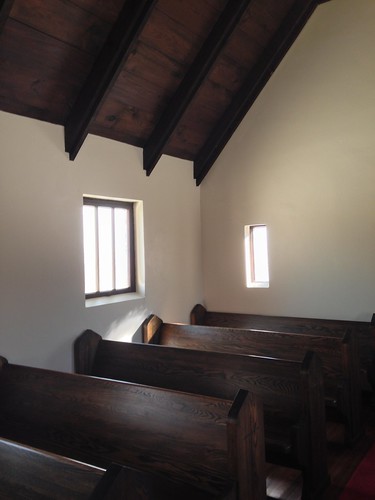
The firm of T. J. Collins also designed The Church of the Good Shepherd which was built in 1924. The sanctuary originally had oil lamps. Photo by Bob Kirchman

Isn't this a great message! When I saw this, I smiled back!
Photo by Bob Kirchman
Paul Smith's Typewriter Art
A man with severe cerebral palsy creates amazing compositions on a typewriter!
Astound the Age

Michel Dufrénoy's Guide to Our Past Century
By Bob Kirchman
Copyright © 2017, The Kirchman Studio, all rights reserved
In 1863, right after the publication of Five Weeks in a Balloon, Jules Verne presented his publisher Jules Hetzel the manuscript for Paris in the Twentieth Century. Hetzel rejected it. Verne’s great-grandson, Jean Verne discovered the manuscript and published it. The story follows young Michel Dufrénoy through a future world that has forgotten the influence of true art and fallen into a harsh utilitarianism. The story ends with Dufrénoy collapsing in the snow. Here I engage in a bit of ‘fan literature’ as I offer a sequel to Paris in the 20th Century.
So this is what death is like” thought Michel Dufrénoy. His hand turning blue clutching the ruined violets. The demon of electricity no longer tormented his mind. Instead he heard what must have been the voice of an angel. As his life ebbed away the young poet heard a lovely voice… strangely familiar. Something stirred him to a heightened consciousness and the voice grew stronger. Now imperative! “Wake up!” His mind jolted to alertness and Michel thought to himself “this cannot be!” Yet, in the thoroughness of his search, he had stumbled into this precinct most thought deserted… yet there was the voice… again! Begging him to rouse! Dufrénoy struggled to rise and fell unconscious back into the snow.
Consciousness returned and Michel found himself lying on a mat in some sort of subterranean conduit. It was a round tube lined with brick and its walls bore the evidence of seeping water, the stains confirming the young man’s suspicion that he was indeed underground. At this moment, anyway, the tunnel was dry. Michel was wrapped in blankets and surrounded by heated bricks. He was coming back from the dead! A single light dangled from a wire in the tunnel and though it was electric, it was dim – an antiquated device which gave a very limited light to the catacomb in which it shown. As he stirred, an old woman emerged from the darkness to check on him. “How do you feel?” she asked. Michel Dufrénoy could only manage a groan.
So, what had befallen our young protagonist? Though he would not remember it, his new benefactor told him the story as he regained his faculties. Indeed he had fallen in the snow of the cemetery and was almost dead when a member of their group returning to the catacombs found him. This person tried to rouse him but when she could not, convinced some of the community to risk bringing him inside. The tombs of major cities often were places not inhabited – but providing shelter to those outside of the civilization proper. In Rome, the catacombs had provided space for the faithful to worship during the harsh reign of unfriendly emperors. Here in the mausoleum district was a bit of abandoned air and steam tunnel in which lived a community in exile.
The entrance to this place was a well-hidden shaft built for maintenance that was inside the precincts of the cemetery. The falling snow had made it imperative that they refrain from sorties outside the tunnels so as not to leave footprints but one of their members required medicine and so a close relative had volunteered to carefully leave the community and return. She was the one who found Michel. There are many stories, particularly from the great American war a hundred years before, of departed loved ones appearing in dreams to their most cherished as they leave this world and Michel pondered the voice he recalled so clearly in his brief moment of regained consciousness in the snow. Indeed the ruined violets spoke to a love that would sacrifice – a higher love from an abandoned time.
He thought about the modern technocrat’s abandonment of faith in the Divine – and the ‘miracles’ recorded in the past that the moderns derided. Even Michel was no strong believer. The church existed to instill order in society and bury the dead. It was not a good thing to have religious fervor as that was often the stuff of conflict. But the Twentieth Century had experienced great travail as a result of diminishing faith in other ways. True, there were no longer wars over doctrines but the life of family and community had withered as personal satisfaction became the only motivator in society. Michel had never thought much about the Divine, but now he pondered his strange new circumstances and the vision that had preceded them.
Chapter Two
When Michel Dufrénoy regained a bit more consciousness he was delighted to see his old friend Monsieur Richelot! The old professor warmly embraced his pupil and after some amazed pleasantries, told his story. “Indeed I was being evicted for not paying my rent. My tenure as a teacher came to an end with the withdrawal of my last miserable student. One of my old colleagues came to visit me as I was cleaning out my office and let me know of this place. Lucy and I have joined the classics in exile, I fear. You must, however, be extremely grateful that she dared to go out for my much needed medicine, for it was she who found you, almost frozen to death! Be assured she convinced us to go outside at great risk and bring you inside. Thankfully the snow keeps falling and we have other entrances when we need them.”
At that moment Lucy emerged from the darkness, her eyes saying more than any words, even those of a great poet, could ever hope to express. Michel tenderly squeezed her hand, apologizing for not successfully conveying the violets to her. At that she raised her other hand displaying the ruined blossoms. Sweet laughter filled the illuminated space in the tunnel!
What followed was a long and slow period of healing. The three friends discussed their cherished literature and read aloud from volumes Richelot had been able to bring into the catacomb. Meals were bland, assembled from a forgotten cache of survival grains, primarily rice, that had been discovered in a forgotten shelter from times when men still waged war. Mushrooms, grown in the tunnels, provided flavor and some additional nourishment but alas, there was no way to create the richness of flavor that most had enjoyed above ground. Michel asked about Quinsonnas. Was there any news of his old colleague? Richelot knew nothing. Would the pianist emerge to ‘Astound the Age?’ No one knew. Gradually Michel met the other members of the community. There were poets, painters, musicians and dreamers. Misfits all!
As the young man grew stronger, it was time for him to enter into the life of the community. Richelot’s recommendation was all that it required. Now he was party to the deeper discussion of what would become of them. It was already decided that modern France held no place for them, but the plan was to immigrate to French America. How would they pay for passage in steerage of some vessel like Leviathon IV, the young man wondered? Richelot explained, “There are others, who you will not see. They are still in the employ of industry and commerce, but their hearts are with us. We have entered into a pact that will take us all to the wilds of Quebec and the acquisition of some land on which we may farm… and create! Will you come with us?”
Dear Monsieur Richelot! You know my answer.”
And so, young Dufrénoy entered into the life of the community. He often ran the dangerous errands necessary to maintain contact with the working members of the resistance. His skill at stealth made him an important agent of the little group and though there was no wealth to the group as yet, he mustered his courage to pursue talk of a future with Lucy. He could make no promise of established wealth, but he could offer the strength of a pioneer. He would work like a dog to provide for his family and in a new world, Hopes would become reality. Though he had lost the manuscript, Michel recalled the best of his words and began to write anew.
The Winter of the great freeze grudgingly came to an end. For the next year the group continued to work and save. Dufrénoy made his way into the outlying suburbs of Paris and secured employment as a clerk. He was able to rent a bunk in a modest dormitory and so contribute more to the cost of passage. With the blessing of the community he purchased some new clothes as well. His trips to the catacombs were of necessity few, but one day he appeared in his new clothes with a bouquet of local violets and a basket of nice foods and wine. “Monsieur Richelot,” he began, “I have to ask you a very important question.”
So began the engagement of Monsieur Dufrénoy and Lucy. The wedding would take place on the first day the ship was in international waters!
Chapter Three
Dufrénoy returned to his work a man with a mission. His employers thought him ambitious and seeking advancement. He soon rose to the level of the management he despised but kept to his simple lodgings. This required no small feat of stealth in itself, for an upwardly mobile young man was expected to live in the high opulence of self-indulgence he was entitled to. Michel deftly acquired a set of house plans and spent a bit of break-time in marking them up, changing room dimensions and moving walls. Possibly the dwelling so rendered could be built in Quebec. On weekends he sometimes went to look at land. His coworkers, convinced of his energies being expended in pursuit of the perfect dwelling, wondered not at his current economy of living.
His closest comrade at work was a Monsieur Jean Dumont, a clerk as he was, who had some interest in the arts, though he professed no talent. They occasionally discussed literature together though Dumont’s tastes disturbingly favored such works as ‘Song of the Turbines.’ Still, he was eclectic enough in his tastes that he possessed some of the old volumes. His reading included the works of the great engineer Claudius Crozet, who had built railroads in America and Isambard Kingdom Brunel. Rather than a crass fascination with industrialism in itself, Dumont admired these engineers of French descent for the poetry of their designs. Brunel’s bridges, though works of infrastructure, were works of art as well. Often his bridges incorporated Egyptian themes and his arches were graceful to behold. His Clifton Suspension Bridge was so beautiful it became the Iconic symbol of an English City.
Dumont and Dufrénoy worked for a large company that specialized in building bridges and highways. They both lamented the utilitarian nature of the projects they built in 1962. They also seemed to share a more frugal outlook in personal matters than their colleagues and often enjoyed a drink together, eschewing the lavish evenings enjoyed by their fellows. Jean had a modest house near the company which he lived in with his wife and children. Eventually he offered Michel a very reasonable rental of his extra bedroom. Since it was not much more than the dormitory and there was no commuting expense, it was a deal quickly sealed. On the occasional weekends when he went to see Lucy, there was nothing at all suspicious about it, save he simply disappeared from view for a few days.
The next year progressed rapidly and soon it would be time to sail. Since he lived ‘above ground,’ there was nothing unusual about Michel’s resignation and announcement that he was off to the Americas. Surely he would find employment with those audacious companies proposing even bigger motorways and a bridge from America to Asia! The future was bright indeed and Monsieur Dufrénoy would be there to take part in it! Passage was secured on a German vessel, the Wilhelm, for the Spring of 1964.
(to be continued)
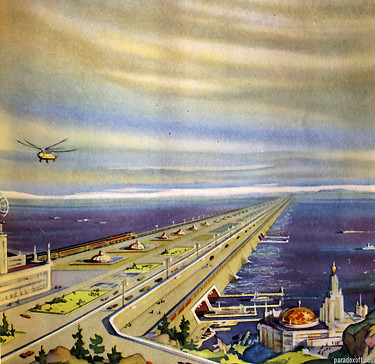
In 1961, Russian engineer Peter Borisov proposed a dam across the Bering Strait that would carry a superhighway between Siberia and Alaska. The dam was planned as a climate modifying proposal that Borisov believed would warm Siberia. [1.]

